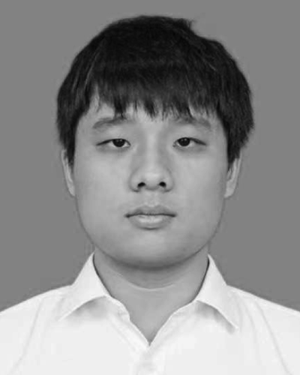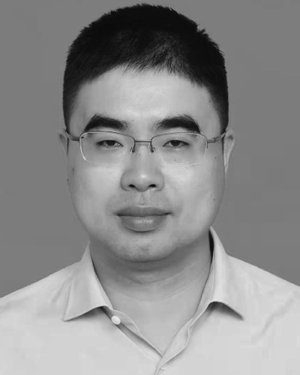Abstract:
Recently, siamese-based trackers have achieved significant successes. However, those trackers are restricted by the difficulty of learning consistent feature representati...Show MoreMetadata
Abstract:
Recently, siamese-based trackers have achieved significant successes. However, those trackers are restricted by the difficulty of learning consistent feature representation with the object. To address the above challenge, this paper proposes a novel siamese implicit region proposal network with compound attention for visual tracking. First, an implicit region proposal (IRP) module is designed by combining a novel pixel-wise correlation method. This module can aggregate feature information of different regions that are similar to the pre-defined anchor boxes in Region Proposal Network. To this end, the adaptive feature receptive fields then can be obtained by linear fusion of features from different regions. Second, a compound attention module including a channel and non-local attention is raised to assist the IRP module to perform a better perception of the scale and shape of the object. The channel attention is applied for mining the discriminative information of the object to handle the background clutters of the template, while non-local attention is trained to aggregate the contextual information to learn the semantic range of the object. Finally, experimental results demonstrate that the proposed tracker achieves state-of-the-art performance on six challenging benchmark tests, including VOT-2018, VOT-2019, OTB-100, GOT-10k, LaSOT, and TrackingNet. Further, our obtained results demonstrate that the proposed approach can be run at an average speed of 72 FPS in real time.
Published in: IEEE Transactions on Image Processing ( Volume: 31)
Funding Agency:

College of Computer Science and Technology, Zhejiang University of Technology, Hangzhou, China
Sixian Chan received the Ph.D. degree from the College of Computer Science and Technology, Zhejiang University of Technology, in 2018. He is currently a Lecturer in computer science and technology with the Zhejiang University of Technology. His research interests cover image processing, machine learning, deep learning, and video tracking.
Sixian Chan received the Ph.D. degree from the College of Computer Science and Technology, Zhejiang University of Technology, in 2018. He is currently a Lecturer in computer science and technology with the Zhejiang University of Technology. His research interests cover image processing, machine learning, deep learning, and video tracking.View more

College of Computer Science and Technology, Zhejiang University of Technology, Hangzhou, China
Jian Tao received the bachelor’s degree from Wenzhou University Oujiang College in 2019. He is currently pursuing the master’s degree with the College of Computer Science and Technology, Zhejiang University of Technology. His research interests cover machine learning and video tracking.
Jian Tao received the bachelor’s degree from Wenzhou University Oujiang College in 2019. He is currently pursuing the master’s degree with the College of Computer Science and Technology, Zhejiang University of Technology. His research interests cover machine learning and video tracking.View more

College of Electrical and Information Engineering, Quzhou University, Quzhou, China
Xiaolong Zhou (Member, IEEE) received the Ph.D. degree in mechanical and biomedical engineering from the City University of Hong Kong, Hong Kong, in 2013. He worked as an Associate Professor in computer science and technology with the Zhejiang University of Technology, Hangzhou, China, from 2014 to 2019. He was a Postdoctoral Research Fellow with the School of Computing, University of Portsmouth, Portsmouth, U.K., from 20...Show More
Xiaolong Zhou (Member, IEEE) received the Ph.D. degree in mechanical and biomedical engineering from the City University of Hong Kong, Hong Kong, in 2013. He worked as an Associate Professor in computer science and technology with the Zhejiang University of Technology, Hangzhou, China, from 2014 to 2019. He was a Postdoctoral Research Fellow with the School of Computing, University of Portsmouth, Portsmouth, U.K., from 20...View more

College of Computer Science and Technology, Zhejiang University of Technology, Hangzhou, China
Cong Bai (Member, IEEE) received the B.E. degree from Shandong University, Jinan, China, in 2003, the M.E. degree from Shanghai University, Shanghai, China, in 2009, and the Ph.D. degree from the National Institute of Applied Sciences, Rennes, France, in 2013. He is currently an Associate Professor with the College of Computer Science and Technology, Zhejiang University of Technology, Hangzhou, China. His research interes...Show More
Cong Bai (Member, IEEE) received the B.E. degree from Shandong University, Jinan, China, in 2003, the M.E. degree from Shanghai University, Shanghai, China, in 2009, and the Ph.D. degree from the National Institute of Applied Sciences, Rennes, France, in 2013. He is currently an Associate Professor with the College of Computer Science and Technology, Zhejiang University of Technology, Hangzhou, China. His research interes...View more

College of Computer Science and Artificial Intelligence, Wenzhou University, Wenzhou, China
Xiaoqin Zhang received the B.Sc. degree in electronic information science and technology from Central South University, China, in 2005, and the Ph.D. degree in pattern recognition and intelligent system from the National Laboratory of Pattern Recognition, Institute of Automation, Chinese Academy of Sciences, China, in 2010. He is currently a Professor with Wenzhou University, China. He has published more than 100 papers i...Show More
Xiaoqin Zhang received the B.Sc. degree in electronic information science and technology from Central South University, China, in 2005, and the Ph.D. degree in pattern recognition and intelligent system from the National Laboratory of Pattern Recognition, Institute of Automation, Chinese Academy of Sciences, China, in 2010. He is currently a Professor with Wenzhou University, China. He has published more than 100 papers i...View more

College of Computer Science and Technology, Zhejiang University of Technology, Hangzhou, China
Sixian Chan received the Ph.D. degree from the College of Computer Science and Technology, Zhejiang University of Technology, in 2018. He is currently a Lecturer in computer science and technology with the Zhejiang University of Technology. His research interests cover image processing, machine learning, deep learning, and video tracking.
Sixian Chan received the Ph.D. degree from the College of Computer Science and Technology, Zhejiang University of Technology, in 2018. He is currently a Lecturer in computer science and technology with the Zhejiang University of Technology. His research interests cover image processing, machine learning, deep learning, and video tracking.View more

College of Computer Science and Technology, Zhejiang University of Technology, Hangzhou, China
Jian Tao received the bachelor’s degree from Wenzhou University Oujiang College in 2019. He is currently pursuing the master’s degree with the College of Computer Science and Technology, Zhejiang University of Technology. His research interests cover machine learning and video tracking.
Jian Tao received the bachelor’s degree from Wenzhou University Oujiang College in 2019. He is currently pursuing the master’s degree with the College of Computer Science and Technology, Zhejiang University of Technology. His research interests cover machine learning and video tracking.View more

College of Electrical and Information Engineering, Quzhou University, Quzhou, China
Xiaolong Zhou (Member, IEEE) received the Ph.D. degree in mechanical and biomedical engineering from the City University of Hong Kong, Hong Kong, in 2013. He worked as an Associate Professor in computer science and technology with the Zhejiang University of Technology, Hangzhou, China, from 2014 to 2019. He was a Postdoctoral Research Fellow with the School of Computing, University of Portsmouth, Portsmouth, U.K., from 2015 to 2016. He is currently an Associate Professor with the College of Electrical and Information Engineering, Quzhou University, Quzhou, China. He has authored over 100 papers in peer-reviewed journals and conferences. His research interests include visual tracking, gaze estimation, 3D reconstruction, and their applications in various fields.
Xiaolong Zhou (Member, IEEE) received the Ph.D. degree in mechanical and biomedical engineering from the City University of Hong Kong, Hong Kong, in 2013. He worked as an Associate Professor in computer science and technology with the Zhejiang University of Technology, Hangzhou, China, from 2014 to 2019. He was a Postdoctoral Research Fellow with the School of Computing, University of Portsmouth, Portsmouth, U.K., from 2015 to 2016. He is currently an Associate Professor with the College of Electrical and Information Engineering, Quzhou University, Quzhou, China. He has authored over 100 papers in peer-reviewed journals and conferences. His research interests include visual tracking, gaze estimation, 3D reconstruction, and their applications in various fields.View more

College of Computer Science and Technology, Zhejiang University of Technology, Hangzhou, China
Cong Bai (Member, IEEE) received the B.E. degree from Shandong University, Jinan, China, in 2003, the M.E. degree from Shanghai University, Shanghai, China, in 2009, and the Ph.D. degree from the National Institute of Applied Sciences, Rennes, France, in 2013. He is currently an Associate Professor with the College of Computer Science and Technology, Zhejiang University of Technology, Hangzhou, China. His research interests include computer vision and multimedia processing.
Cong Bai (Member, IEEE) received the B.E. degree from Shandong University, Jinan, China, in 2003, the M.E. degree from Shanghai University, Shanghai, China, in 2009, and the Ph.D. degree from the National Institute of Applied Sciences, Rennes, France, in 2013. He is currently an Associate Professor with the College of Computer Science and Technology, Zhejiang University of Technology, Hangzhou, China. His research interests include computer vision and multimedia processing.View more

College of Computer Science and Artificial Intelligence, Wenzhou University, Wenzhou, China
Xiaoqin Zhang received the B.Sc. degree in electronic information science and technology from Central South University, China, in 2005, and the Ph.D. degree in pattern recognition and intelligent system from the National Laboratory of Pattern Recognition, Institute of Automation, Chinese Academy of Sciences, China, in 2010. He is currently a Professor with Wenzhou University, China. He has published more than 100 papers in international and national journals and international conferences, including IEEE Transactions on Pattern Analysis and Machine Intelligence, IJCV, IEEE Transactions on Image Processing, IEEE Transactions on Industrial Electronics, IEEE Transactions on Computers, ICCV, CVPR, NIPS, IJCAI, AAAI, and among others. His research interests are in pattern recognition, computer vision, and machine learning.
Xiaoqin Zhang received the B.Sc. degree in electronic information science and technology from Central South University, China, in 2005, and the Ph.D. degree in pattern recognition and intelligent system from the National Laboratory of Pattern Recognition, Institute of Automation, Chinese Academy of Sciences, China, in 2010. He is currently a Professor with Wenzhou University, China. He has published more than 100 papers in international and national journals and international conferences, including IEEE Transactions on Pattern Analysis and Machine Intelligence, IJCV, IEEE Transactions on Image Processing, IEEE Transactions on Industrial Electronics, IEEE Transactions on Computers, ICCV, CVPR, NIPS, IJCAI, AAAI, and among others. His research interests are in pattern recognition, computer vision, and machine learning.View more


